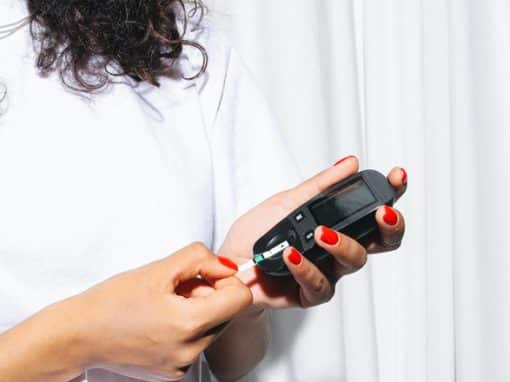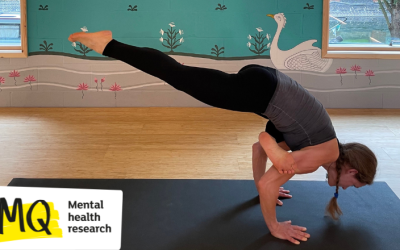It is testament to the positive culture created by the senior leadership team at MQ, and a wonderful way to honour our late CEO Lea Milligan.
Post-Traumatic Stress Disorder (PTSD)
2 million
people in the UK are affected by PTSD
1 in 4
of those living with PTSD get treatment
£400k
is spent on research on PTSD each year in the UK
Related Conditions:
What is post-traumatic stress disorder (PTSD)?
Post-Traumatic Stress Disorder is an anxiety disorder that can be developed by experiencing or witnessing a one-off event, or ongoing events, that are extremely distressing or frightening.
This can be experiences such as a car crash, domestic or sexual abuse or working in a war zone. People with PTSD can relive the trauma through vivid memories and flashbacks and struggle in their daily life.
PTSD can affect people of any age, and the symptoms normally begin within the first three months after the traumatic experience.
What are the signs and symptoms?
Reliving the traumatic event:
People with PTSD repeatedly relive the traumatic events vividly. This can include flashbacks, hallucinations and nightmares.
Avoidance:
People with PTSD may experience a sense of detachment and isolation as those with PTSD avoid any situations that may remind them of the trauma. This includes people, places and jobs. People with PTSD may go to potentially dangerous measures of avoidance such as excessive drinking of alcohol to avoid these experiences.
Negative cognition and mood:
People with PTSD may have constant thoughts of blame, overwhelming feelings of anger and sadness. This can lead to thoughts of distrust, that there is no safe place or that no one can ever understand.
Increased alertness:
People with PTSD may experience hypervigilance (extreme alertness). This can lead to disturbed sleep, or lack of sleep or more irritable or aggressive and perhaps jumpy or easily startled. They may find it harder to concentrate and this may stop them from doing everyday tasks.
What are the causes for Post-Traumatic Stress Disorder?
Any situation that is harmful and life-threatening can lead to PTSD; potentially, any event can cause PTSD, as everyone reacts to events differently. Here are some of the examples of harmful or life-threatening events:
- Road accidents such as car crashes.
- Violent assaults such as sexual assaults, rape, robbery, military combat.
- Childhood abuse, being bullied, experiencing racism, sexism, homophobia.
- Experiencing natural disasters, such as earthquakes, hurricanes, floods, a pandemic.
- Childbirth
Researchers have shown people are more likely to develop PTSD after a traumatic event if they have a history of other mental problems, have relatives with mental health problems, or have a history of drug abuse or alcohol.
What are common treatments for Post-Traumatic Stress Disorder?
Statistics have shown that 2 in 3 people who have PTSD get better within a few weeks without treatments. However, if treatment is required, it may involve psychotherapy and medication as these can be used to help people with PTSD manage and cope with their symptoms and improve daily functioning.
Psychotherapy:
TF-CBT - Trauma-focused Cognitive Behavioural Therapy
Therapy that uses CBT and exposure techniques that help overcome negative effects such as overwhelming stress from the trauma.
PE - Prolonged Exposure Therapy
Using a well-controlled and safe environment, the person is exposed to objects and/or situations that prompt them to relive the traumatic event. Confronting this fear and then gradually becoming more comfortable with the situation, can be very successful in treating PTSD.
EMDR - Eye movement desensitization and reprocessing
This is used to alleviate the distress associated with the trauma.
Medication:
Antidepressant medication is used to treat PTSD and its symptoms, such as anxiety. Your GP would reccomend the best one for your situation.
What help and resources are available for people who need support or further advice?
For more information and advice:
Gaining more information about the disorder can help people understand more about symptoms and treatments available in order for them to get the right support needed.
- ASSIST Trauma Care (See here)
- The National Association for People Abuse (See here)
- NHS (See here)
- Mind (See here)
Support services:
Services can help a person get through their disorder and reach out to people who are experiencing the same thing. They offer advice and tips to manage their everyday tasks and help explore their disorder:
- Birth Trauma Association (See here)
- Combat Stress (See here)
- Disaster Action (See here)
- EMDR UK & Ireland (See here)
What are the recent developments in research for Post-Traumatic Stress Disorder?
Identifying neuromuscular circuits of remote fear memory attenuation
Dr Johannes Graff examined what exposure therapy can teach us about PTSD. Through studying how the cell behaviour changes when traumatic memories are targeted and reduced, he discovered the group of cells vital for storing and reducing traumatic memories. This supports the idea that re-writing memories through exposure therapy could be the most successful way of overcoming trauma. Find out more.
Preventing PTSD in emergency workers
Dr Jennifer Wild and her team at the University of Oxford have found that student paramedics are at particular risk of developing PTSD if they tend to dwell on past events. Combining existing cognitive therapies with new ways of helping people could help the NHS improve productivity, and reduce the time lost to sickness. Find out more.
Want to see more of our mental health research? See how our world-class researchers are working tirelessly to better understand, diagnose and treat mental illness.
Enjoying this insight? Want to see more like it?
By funding research we can transform what it means to experience anxiety, advancing treatments and improving the lives of millions of people.
Our research into PTSD

Adapting and testing an integrated care model for treatment of Type 1 diabetes and mental health co-morbidities
People with Type 1 diabetes are at a higher risk of developing depression, anxiety, and early mortality. Can an existing care model be adapted to help? More about this project

DATAMIND
The DATAMIND platform is a UK-wide mental health data research hub that will transform mental health research. More about this project

Sex hormones and fear inhibition: A novel exploration of why women are so vulnerable to anxiety disorders
Do natural variations in hormones, such as oestrogen, make anxiety disorders more likely? If so does this affect the way people respond to treatment? More about this project
Related Posts
Movement for Mental Health Awareness Week 2024: Feeling Safe In Your Body
Mental Health Awareness Week is this year 13th to 19th May. For 2024 the theme is ‘Movement for Mental Health’. Movement can have a positive impact on mental wellness whether that be through running, some more gentle activity or even through fundraising for charities...
Still Moving: Eating Disorders And Movement For Mental Health
Content warning: This blog references eating disorders and suicide For Mental Health Awareness Week 2024, the theme is 'Movement for Mental Health'. For many, that might translate to exercise, which is one interpretation of the theme. For those with eating disorders,...
Read next
View our research projects
Read more about different mental health conditions
Our research projects
Explore how our world-class researchers are working tirelessly to tackle mental illness.
View our research projects
Mental health conditions
Learn more about different mental health conditions, and the research we're doing to transform the lives of those affected by them.
Read more about different mental health conditions
Take part in research
How you can get involved in mental health research.


